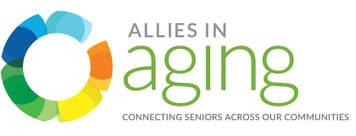- Details
- Published: 08 May 2018

- Do you have someone to call on for support when you need it, or listen to you when you need
to talk? - Are you able to participate regularly in activities?
- Do you feel valued by—and connected to—family, friends and neighbours?
If your answer was, “No,” you are at risk of being isolated.
Social isolation can put seniors at greater risk of death than factors such as obesity and physical inactivity. It can also make them vulnerable to elder abuse.
Social isolation is an all-ages issue but, for seniors, it can be much harder to overcome. Loss of partners, siblings and lifelong friends means you have fewer people to turn to for any kind of support or help. Living on a low income can mean making difficult choices around which needs you’re able to meet—and socializing often comes last. Living with a disability or language barrier can limit options for nurturing relationships or making new connections. Being unable to drive or use public transit easily can mean limiting outings for anything more than the essentials.
Allies in Aging is a collective impact initiative to reduce seniors’ social isolation in our communities. Our focus is on people who are 75+ and at risk of isolation due to disability, low income, language or cultural barriers.
Taking a collective impact approach means we commit to a common agenda, share an evaluation approach, and strategically align programs and projects. We also have an independent “backbone” team to support coordination, communication and collaboration.
Allies in Aging officially launched in 2016. It is one of nine Pan-Canadian projects using collective impact to reduce seniors’ social isolation. Projects are funded in part by the Government of Canada’s New Horizons for Seniors Program.
Nearly thirty partner organizations are working together to connect seniors to supports and services. Projects include leadership programs, outreach, transportation initiatives, training programs and advocacy. Two projects take a neighbourhood-based approach to reduce isolation and two have a regional focus.
- Seniors Hub: Senior leaders at different sites shape program design and delivery to reach a significant number of isolated seniors. Staff and trained volunteers provide outreach to bridge barriers than can isolate seniors from support and a sense of being valued. They also create a network to be responsive to needs through collaboration and sharing promising practices.
- Welcoming Seniors’ Spaces: This project connects seniors to welcoming spaces through intentional outreach. Volunteers from diverse cultural backgrounds connect seniors to a variety of programs and services, including dialogues, meals and shared experiences.
- Seniors on the Move: This multi-sector collaboration works to reduce transportation barriers. They share and enhance existing services; design innovative new services and partnerships; help seniors plan for age-related changes to transportation needs; and advocate for improved transportation services.
- Volunteer Impact: Training helps volunteers and service providers better identify seniors who are isolated, understand their needs, and connect them with appropriate services and resources. This project coordinates knowledge sharing and training events to increase sector capacity when working with seniors at risk.
Want to connect or learn more about Allies in Aging? Sign up for our monthly e-newsletter:
About the author
Mariam Larson is a gerontologist and Allies in Aging Backbone Lead. Connect with Mariam at

















